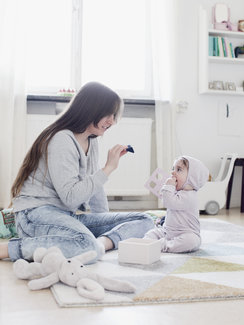

Displaying 121 - 130 of 237
The present study analyzes differences between perceived social support from family, peers, and adult mentors in Unaccompanied refugee minors (URM), with subgroup analyses of peer and mentor support in URM with and without family contact.
In the present exploratory study 69 case-files of children referred to a Dutch national center for residential youth care for children with intellectual disabilities (ID) were analyzed to assess the prevalence and associations of Adverse Childhood Experiences (ACEs).
The present study is the first to examine reunification rates and characteristics associated with reunification decisions in Flemish short-term foster care.
This study sought to investigate the emotional facet of self–esteem (SE) in 46 adult survivors of institutional childhood maltreatment (IM) in foster care settings provided by the City of Vienna.
In the current study, several assessments for attachment disorder symptoms are used within a German sample of foster children after being exposed to neglect and maltreatment in their biological families.
In an explorative manner, the current study investigates variables that influence psychological evaluators’ recommendations in child protection cases.
This chapter provides an overview of the German child protection system.
This chapter aims at providing an overview on legislation, organizational structure and processes of child protection in Switzerland.
This chapter draws on the policy analysis developed for the research project Hestia, which compares policies and responses to child abuse and neglect in England, Germany and the Netherlands.
This chapter describes the child protection system in France.
